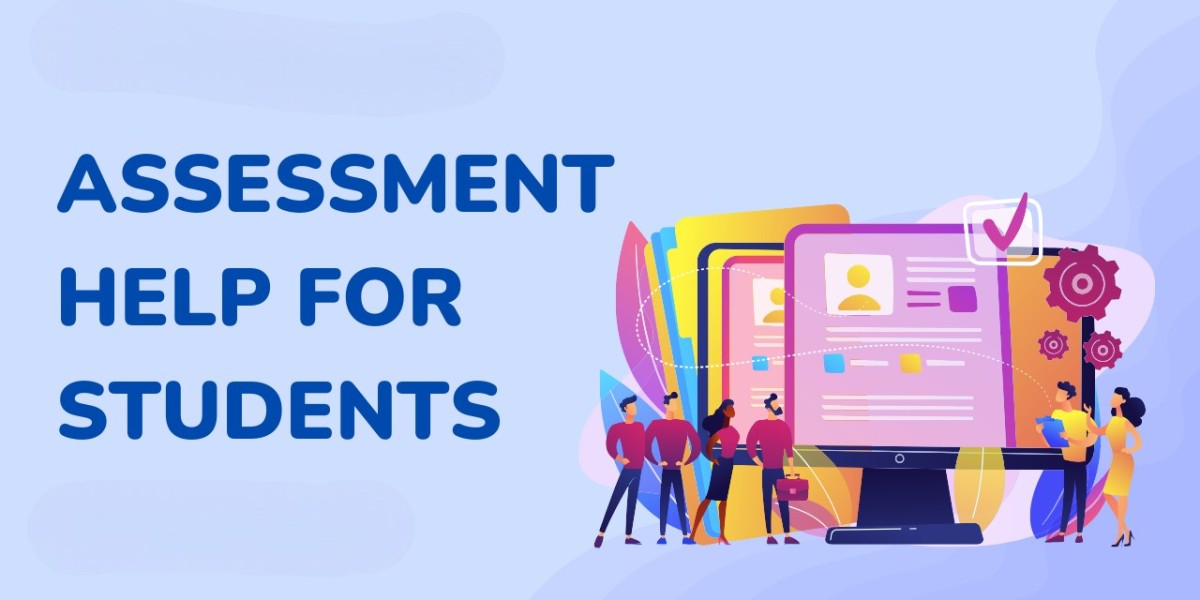When students hear the word "assessment," it often evokes feelings of stress, pressure, and uncertainty. Assessment help are a vital part of the education system, serving to measure students' understanding, critical thinking, and skill levels. However, many students struggle with exams, tests, and other forms of evaluation. This article delves into the common challenges students face during assessments and provides practical strategies to help them achieve better results. We will also answer some frequently asked questions to help guide students on their journey to success.
Understanding Common Challenges in Assessments
Assessments come in various forms: written exams, multiple-choice tests, coursework, or practical evaluations. Each type has its unique demands, and students often find themselves grappling with a range of challenges, such as:
Time Management
One of the biggest challenges students face is managing their time effectively. Whether it’s preparing for an assessment or pacing themselves during an exam, time can quickly become a student’s worst enemy. Procrastination, underestimating the amount of study needed, or overloading one’s schedule can lead to poor preparation.Test Anxiety
Many students experience anxiety leading up to or during an exam. This can range from mild nervousness to severe panic attacks, severely affecting their performance. Test anxiety often stems from fear of failure, lack of preparation, or the pressure to meet high expectations from oneself or others.Difficulty Understanding the Material
Sometimes, despite hours of study, students still struggle to grasp key concepts. This can be due to several reasons: the material may be too advanced, the teaching method might not align with their learning style, or they might have missed foundational lessons. This challenge can create a cycle of confusion and frustration.Lack of Motivation
Maintaining motivation over an extended period can be difficult, especially if a student is not particularly interested in the subject. Without intrinsic motivation, students may find themselves procrastinating or putting in minimal effort, leading to subpar results.Poor Study Habits
Many students aren’t equipped with effective study strategies. They may spend hours passively reading textbooks or cramming the night before an exam, which is often not effective for long-term retention or deeper understanding. Developing better study habits can significantly improve their performance in assessments.
Proven Strategies for Achieving Better Results
Now that we’ve identified the key challenges, here are practical strategies that can help students overcome them and perform better in assessments.
1. Effective Time Management
Time management is critical not only during the actual assessment but also in the preparation phase. To manage time more effectively, students should:
- Create a Study Plan: Breaking down the syllabus into manageable chunks over a period of time can prevent cramming. Allocating specific time slots for studying different subjects or topics will help create structure and reduce stress.
- Set Priorities: Focus on high-priority tasks first. If a particular exam is approaching, dedicate more time to it. Prioritization helps avoid the last-minute rush.
- Take Regular Breaks: The brain needs rest to function efficiently. Following the Pomodoro Technique (25 minutes of study followed by a 5-minute break) can enhance focus and prevent burnout.
2. Dealing with Test Anxiety
To combat test anxiety, students should try:
- Practice Relaxation Techniques: Breathing exercises, mindfulness, and meditation can help calm the mind before and during exams.
- Prepare Thoroughly: Much of the anxiety comes from feeling unprepared. By studying systematically over time, students can feel more confident walking into an assessment.
- Simulate Exam Conditions: Taking mock tests in a timed environment can help reduce the fear of the unknown and make the actual assessment feel more familiar.
3. Improving Subject Understanding
To gain a better grasp of difficult material:
- Seek Help Early: If a student is struggling with a topic, they shouldn’t wait until it’s too late. Seeking help from teachers, tutors, or classmates can clear up confusion.
- Use Multiple Resources: Relying on a single textbook or source of information can limit understanding. Using online tutorials, videos, and different books can offer a fresh perspective on tough topics.
- Teach What You Learn: Teaching a concept to someone else is a powerful way to reinforce understanding. This active form of learning requires deeper processing of information.
4. Boosting Motivation
Staying motivated throughout the assessment period can be challenging. To maintain motivation, students can:
- Set Short-Term Goals: Instead of focusing solely on the end goal (i.e., passing the exam), set smaller, achievable goals. For instance, completing one chapter or topic by the end of the day provides a sense of accomplishment and keeps motivation high.
- Reward Yourself: Small rewards for completing study tasks can make the process feel more enjoyable.
- Visualize Success: Visualization is a proven technique used by athletes and high performers. By picturing themselves succeeding in the exam, students can increase motivation and confidence.
5. Developing Better Study Habits
To improve study habits, students should:
- Active Learning Over Passive Learning: Instead of just reading and re-reading notes, engage in active learning by summarizing material, asking questions, or applying concepts to real-life examples.
- Use Study Aids: Flashcards, mind maps, and mnemonics can make studying more efficient and help retain information better.
- Practice Past Papers: Familiarity with the format and type of questions that appear in an assessment can drastically improve performance. Practicing past papers under timed conditions is one of the most effective ways to prepare.
FAQs About Assessment Challenges and Success
1. How can I manage my time better while studying for an assessment?
To improve time management, create a structured study schedule, break your tasks into smaller, achievable goals, and prioritize high-stakes subjects. Using time management techniques, such as the Pomodoro Technique, can also help keep your focus sharp.
2. What are the best ways to overcome test anxiety?
Preparation is key to reducing anxiety. Beyond that, practicing relaxation techniques such as deep breathing, mindfulness, and meditation can help calm nerves before and during the test. Taking mock exams in real conditions can also help reduce anxiety by making the experience more familiar.
3. How can I stay motivated when studying for assessments?
To maintain motivation, set short-term goals, and reward yourself when you complete them. Visualizing success can also be powerful, as can breaking larger tasks into smaller, more manageable ones. Changing study environments and incorporating new learning materials can also help maintain interest.
4. What should I do if I don’t understand the material?
If you're struggling to understand the material, reach out for help early. Teachers, tutors, or classmates may be able to offer assistance. Additionally, using multiple sources such as online videos or alternative textbooks can give you a new perspective on difficult topics.
5. How can I improve my study habits?
Developing better study habits involves switching to active learning techniques such as summarizing, questioning, and applying knowledge. Using study aids like flashcards and practicing past exam papers can also help reinforce knowledge and build exam confidence.
Conclusion
Assessments are an integral part of academic life, but they don’t have to be a source of constant stress and anxiety. By understanding the challenges that come with assessments and implementing the strategies provided, students can navigate these hurdles more effectively. Remember, preparation, time management, and having the right mindset are key to achieving better results. With these tools at hand, any student can tackle assessments with confidence and come out successful.








